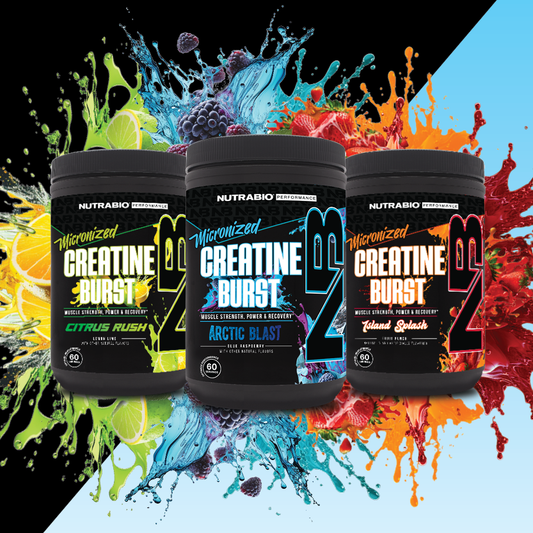Do BCAAs help you recover faster? EndurElite Chief Endurance Officer Matt Mosman discusses what the BCAAs are, how much you should be taking, if they help you recover faster, and the other unique benefits they can provide to endurance athletes.
Fast Facts About BCAAs And Recovery
- The BCAAs (Branch Chained Amino Acids) are leucine, iso-leucine, and valine.
- These three essential amino acids are responsible for stimulating muscle protein synthesis.
- Muscle protein synthesis is the physiological process responsible for muscle repair and recovery.
- If you take a BCAA supplement make sure it contains 2.5 - 3 grams of leucine and 1.25 - 1.50 grams each of iso-leucine and valine.
- BCAAs are can also blunt muscle fatigue, reduce muscle protein breakdown, and be used as an energy source when glucose is low.
Full Video Transcription:
Good morning, Family of FAST, Matt Mosman, the chief endurance officer over at EndurElite. Today, we are going to be talking about BCAAs or branched-chain amino acids, probably, one of the more popular supplements out there. So, what we're going to do is we're going to describe what the BCAAs are, what the proper dose is to promote recovery, and then discuss some of the other benefits of BCAAs for endurance athletes, and talk about some of the stuff that's heavily debated about BCAAs. So, let's just jump right into this.
What Are The Branch Chained Amino Acids?
So, the branched-chain amino acids are 3 of the 9 essential amino acids, meaning you need to consume them through diet or supplementation. Now, the BCAAs are leucine, isoleucine, and valine. And these three BCAAs are really the superstars when it comes to promoting muscle repair and recovery because they are the main triggers of muscle protein synthesis, again, the process of muscle repair and recovery.
How Many BCAAs Do You Need For Recovery?
Now, out of those three BCAAs, leucine really serves as the main trigger of muscle protein synthesis. And here's what's really important when you consume a BCAA supplement, you want to make sure you're getting at least a total of five to six grams to kick start the recovery process, because if you're not, it's really not going to do anything to stimulate muscle protein synthesis. And to go even further into that point, you want to be sure you're getting me at least 2.5 to 3 grams of leucine. And then for the other amino acids out of the branched-chain amino acids, the isoleucine and the valine, you want to get about half the amount of leucine. So, if you're consuming about 3 grams of leucine, you want to make sure you're getting 1.5 of isoleucine and 1.5 of valine, because while leucine by itself is a potent stimulator of muscle protein synthesis, it's their synergistic combination that, kind of, promotes it or spikes it to a greater extent than the leucine by itself.
Are BCAAs Necessary If You Are Eating Enough Protein?
So, again, optimal amount of BCAAs is about five to six grams. Now, a lot of times the debate will come up that people will say, you know, if you're getting enough protein through your diet or you're taking protein powders that you really don't need to take BCAAs. And, you know, there's probably some truth to that, but there are some unique situations where BCAAs are still helpful.
One being, if you're in a calorie restriction where you're cutting down on food or protein powders, or just calories in general, BCAAs have very, very little calories. Most people think they have zero, but they actually have a little, they have a few calories, but again, they have the ability to stimulate muscle protein synthesis without having to consume, you know, 25 grams oBenefits Of BCAAs For Runners, Cyclists, And Other Endurance Athletesf protein, which would have roughly...let's do the math, about 100 calories.
Benefits Of BCAAs For Runners, Cyclists, And Other Endurance Athletes
Now, beyond that BCAAs have some unique benefits to endurance athletes. The first being is it can reduce muscle protein breakdown during endurance exercise, especially during an extended endurance exercise. And this is, again, a function of stimulating muscle protein synthesis. Also, BCAAs are a preferred fuel source when glucose is running low in the body. So, let's say, if you're out, you know, running or biking or OCR-ing for over two hours and you're not replenishing carbohydrates, the BCAAs can come in and kick in and basically provide energy through a really cool physiological process that we won't talk about, but that can happen as well.
Now, third, BCAAs may also be able to blunt muscle fatigue during endurance exercise. And this is because they compete with tryptophan in the brain. Now, when tryptophan gets in the brain, that's when you feel fatigued. But the BCAAs compete with the tryptophan. So, it may minimize the effect of feeling fatigue. So that is BCAAs is in a nutshell. Main point being, if you're going to take a BCAA supplement, you want to make sure that you're getting at least 5 to 6 total grams, with 2.5 to 3 of those being from leucine. And beyond the muscle repair and recovery process, they have other unique benefits to endurance athletes that we just discussed.
So, that is all I have for today, my endurance friends. If you have a buddy that has a million questions about BCAAs, please share this video with them. If you want other videos like this on endurance training, nutrition, supplement taste, and busting the BS, subscribe to the EndurElite YouTube Channel or head on over to the EndurElite blog at www.endurelite.com. Get social with us on Instagram and the Family Of FAST Facebook page. And until next time, stay fueled. Stay focused. Stay fast. And stay informed.


